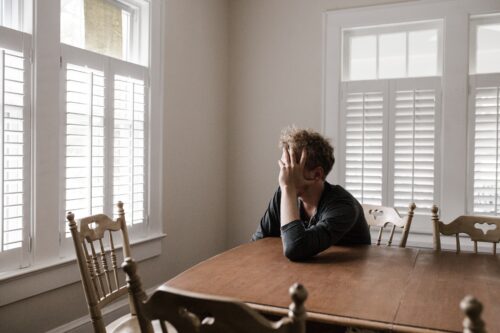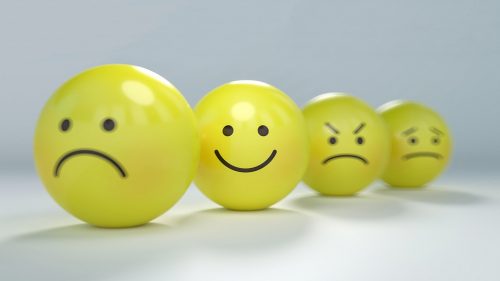When I was growing up, my parents would always ask my teenage cousin Liza to babysit me whenever they would go out. I knew her as the daughter of Mom’s second cousin. I saw her as the big sister that I never had, so I loved having her around. She taught me how to braid my doll’s hair and helped me with my homework. I also liked that she was not afraid of bugs and would stand up for me when I couldn’t.

Despite that, I noticed something unusual. Liza would agree to go to our house anytime, except when my mother’s siblings were visiting and staying at our home. If she was my cousin from my mother’s side, then it could only mean that my uncles and aunt were hers, too, right? I remembered asking Liza when I was still in elementary school, but she became closed off and said that I was too young to understand, so I did not push it.
I was already in middle school when I overheard my mother talking to another cousin of mine. Her name was Sidney, and she was the daughter of Mom’s sister, who died in a car accident years ago. I was close to her, but she was already working, so we rarely saw her. On that particular day, though, they were discussing Liza’s college plans.
“Where is Liza planning to go to college?” Mom asked.
“I told her to come to my alma mater, but she wanted to go to the East Coast,” Sidney replied.
“I see. And is she getting a scholarship?”
“She’s trying, yes. But I told her I could pay for her college tuition and dorm,” she uttered.
“You are very nice, dear,” Mom said.
“I’m just doing my part as her sister.”
Talk about mind explosion. Liza and Sidney were sisters. But they have different surnames and parents. How is that possible? I waited for Sidney to leave before asking my mother about it. She refused to tell me anything at first, but she eventually gave up the information when I said I would ask my cousins instead.

“Here’s the thing,” Mom started, “Liza and Sidney are half-sisters. They have the same mother – my sister – but she gave up Liza for adoption because she did not want her husband – Sidney’s father – to see the result of her infidelity.”
“Do all the adults in the family know about it?” I asked.
“Yes.”
“It seems that Liza also knows. However, why won’t Liza bond with them?” I prodded.
Mom seemed super uncomfortable as she said, “My siblings are in denial about Liza’s existence. They won’t acknowledge her as family, especially if old friends would come by. I heard there were even times in the past when they would tell Liza to hide in the room if new visitors arrived at the house.”
Years later, Liza moved to another state and mostly connected with Sidney and her adoptive parents. We found out that Liza developed depression due to the childhood trauma she suffered from being hidden due to her birth nature.
Reflecting On Liza’s Life
Honestly, it was shocking to know that Liza is not just a relative but a first-degree cousin. Though it did not change how I felt about her, I knew in my heart that I should have treated her differently. She deserves the kind of care and love because of her past. For sure, if given a chance to change things in her past, she would not want to end up dealing with inconsiderate people in her life. But who am I to say that? I know nothing, and I am not aware of the adults’ situation. But one thing is for sure. Liza doesn’t deserve the treatment they gave her or the sufferings she endured during her childhood days.
Knowing that my cousin dealt with a mental illness because of the trauma she experienced, I genuinely feel bad for her. I often told my mom what if it was her? Or what if it was me? Would she do the same, or would she feel the same? Mom could not answer because she didn’t know how. I understand that clearly. It’s her sister’s mistake. But why does Liza have to suffer?
I don’t know where Liza is now or how she is doing. But I know that with her mental disorder, she’s not okay. The weight of her depression and tiredness left her feeling drained, as if she was carrying a heavy burden. Depression is a lot of things, and it can ruin one’s life. I may not know how hard it is to deal with depression and its major depressive episodes, but I am sure that my cousin is struggling so hard to keep her mental health and life at bay. No one wants to be kept hidden, not from her family, at least. So I know that Liza has been suffering in silence ever since.
Thoughts On The Mental Health Disorder
I do not know more about depression. But I somehow understand that once it gets to a point of moderate to severe depression, it becomes debilitating. The mental and emotional aspects will get damaged, and all that is left in a person is his will to recover. I have that depression is something that should be taken seriously. Though I do not have a first-hand experience with mental illness, I know the importance of immediate treatment and medication. Start psychological treatment once a diagnosis has been given.
Clearly, I know nothing about the signs and symptoms of depression because, for me, all of these mental health warning signs are the same. When I searched about one condition on the internet, most likely, the symptoms were the same as the other. So I can say I am not genuinely knowledgeable enough to discuss the mental health disorder’s causes, side effects, and treatment. Thus, here are the frequently asked questions I gather and hope will help in understanding depression, psychology, and treatments.
What Is The Definition Of Depression In Psychology?
Depression is a type of mood disorder that causes a person to experience prolonged sadness and worthlessness. It can take a few days or months before it goes away, depending on how fast the individual realizes the problem and seeks mental help.
What Are The Three Forms Of Treatment For Depression?
- Cognitive-behavioral therapy
- Interpersonal therapy or interpersonal psychotherapy
- Psychodynamic therapy
What Are Psychological Treatments?
Psychological treatments refer to various forms of therapy that allow mentally troubled individuals to connect with mental health professionals who can help them understand their issues. Behavioral therapy, administered by a health professional, can help with finding solutions to issues such as substance abuse, anger management, seeking to change behaviors, managing negative thoughts, dealing with past experiences, fixing relationships with family members, and more. Types of psychological therapy sessions can come in the form of group therapy or individual therapy. Get the appropriate kind of therapy that is suited to your needs. If you want to focus on the improvement of your relationship with your co-workers or family members, family therapy is the one for you. If you’re worried about the price of your psychotherapy sessions, you may check if your health insurance covers the expenses. If not, you may look for free or cheap alternatives. Aside from therapy, people with depression can take part in support groups regarding depression. Getting emotional support from a loving community who you can relate can give a sense of relief for some people.

How Does Music Therapy Work With Depression?
Music therapy works by serving as a calming agent for people suffering from depression. The more individuals listen to music that they enjoy, the less they feel pessimistic, sad, and worthless.
What Is The Cause Of A Feeling Of Depression In Human Beings?
Depression is the result of a combination of factors that affect humans. That includes (but is not limited to): genetics, environmental changes, way of thinking, and biology. It affects relationships and other aspects of a person’s life.
What Are The Four Types Of Depression?
- Dysthymia
- Seasonal affective disorder
- Bipolar disorder
- Persistent depressive disorder
Does Depression Count As A Disability?
Yes, depression counts as a disability, especially if it is severe depression. Severe cases are best handled with the professional help of a psychiatrist or psychologist.
How Do I Know If I’m Bipolar?
Mania and depression are two of the primary symptoms of bipolar disorder. When you feel sleepless and hopeless or impulsive for an extended period each time, you may have this condition.
What Is The Difference Between Mood Disorder And Depression?
A mood disorder is a psychological issue that causes a person to experience an amplified level of sadness, happiness, irritability, impulsivity, and various emotions. Meanwhile, depression is one of the few mood disorders characterized by hopelessness, lack of energy, physical pains, etc.
What Is The Number One Cause Of Depression?
Experiencing prolonged changes may be the primary cause of depression. When an individual loses a loved one or significant source of income, gets uprooted, or deals with other issues, they may feel depressed.
What Is The Result Of Depression?
Depression can make you irritable, lose or gain excessive weight, and feel hopeless. Unfortunately, some succumb to their suicidal thoughts and end up taking their own lives.
Which Type Of Depression Is The Most Common Type Of Mood Disorder?
Clinical depression is the most common type of mood disorder. According to good-quality studies, 6.7% of adults in the United States have been diagnosed with this condition.

What Age Group Has The Highest Depression Rate?
People experience depression the most between the ages of 18 and 25.
Can A Neurologist Help With Depression?
The answer is yes and no. Yes, a neurologist may be able to help by prescribing an antidepressant to a depressed individual. However, a neurologist is not trained to find the root of a person’s issues – you will need to see a psychiatrist, psychologist, or therapist for that. If you’re taking antidepressants as prescribed by your doctor, make sure to follow the right amount of dosage to take per day. On the other hand, the psychological treatment for depression doesn’t revolve only around antidepressant medication. There are various methods for treating depression, and mental health care providers can help in finding the most appropriate one.
Final Thoughts Plus Takeaway
I drove a thousand miles to see Liza for the first time in a decade. She greeted me with a warm hug and wanted me to tell her everything I had been doing in life. When it was her turn to talk, I was happy to know that my cousin was getting the mental help she needed to get over her depression.
When I asked when she’d visit back home, she said, “In time.”
What are the psychological approaches to treating depression?
Which drug is used in the treatment of depression psychology?
How a positive psychologist might treat depression?
Which form of therapy is most effective for major depression?
How long is the treatment of depression?



